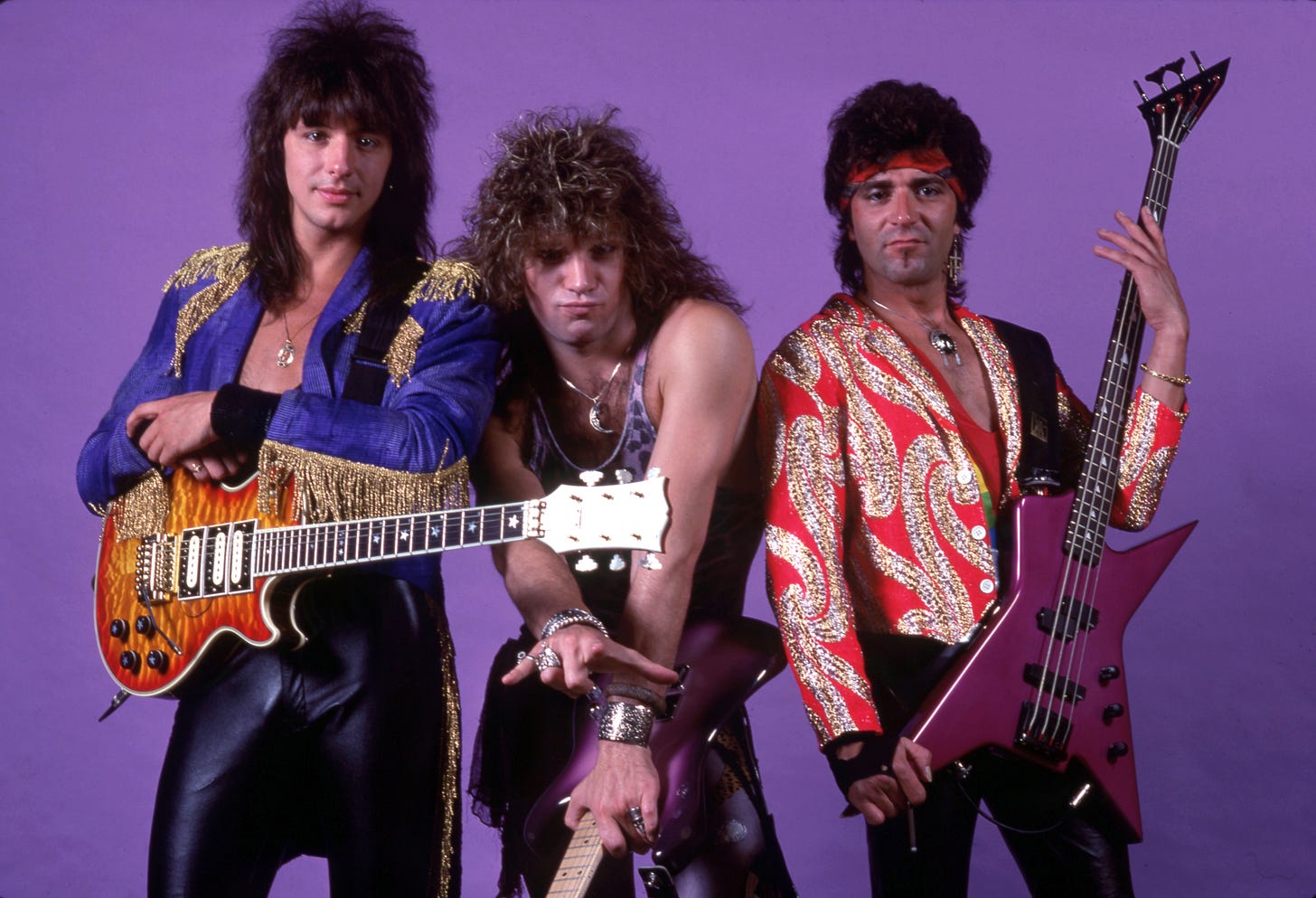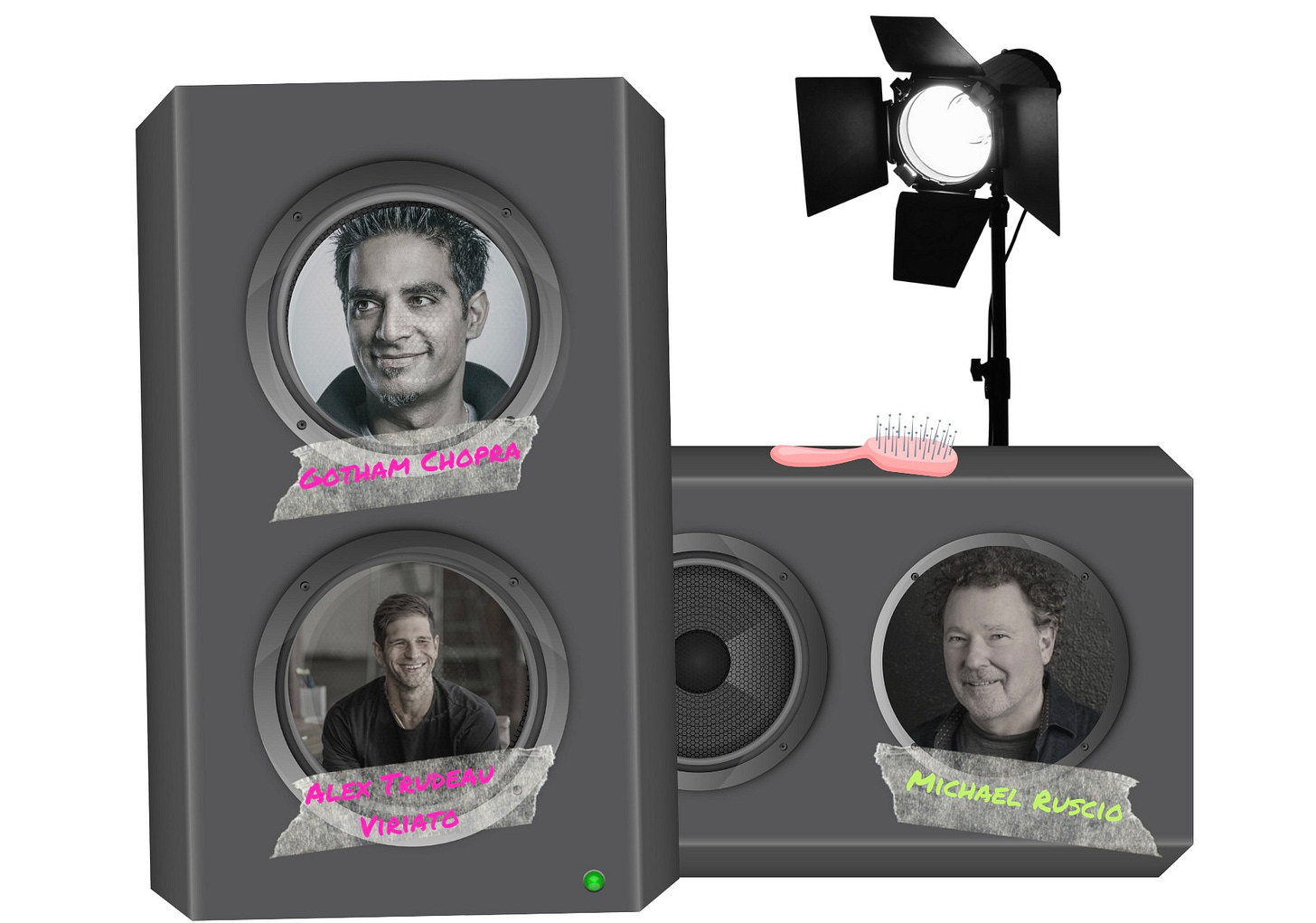🎧 All-Access Pass: 40 Years of Bon Jovi
Director and EP Gotham Chopra and editor-producer Alex Trudeau Viriato unpack their Hulu doc series about the New Jersey glam rockers

Welcome to the latest episode of Art & Crafts, The Ankler’s podcast series dedicated to bringing audiences behind the scenes to examine the careers and contributions of the talented artisans who create and craft the movies and TV series that we love. Subscribe on Apple Podcasts.
“Jon's very opinionated and combative, but not in a bad way,” says Gotham Chopra, who likens the Bon Jovi frontman to an elite athlete. “Really smart, really combative, strongly opinionated — but at the end of the day, respects talent and allows people to do their job.” And Chopra’s job, as EP and director of Hulu’s Thank You, Good Night: The Bon Jovi Story, was to pack the iconic glam-rock band’s four decades of global fame, monster hits and personal challenges into four one-hour episodes.
In a wide-ranging conversation moderated by award-winning editor Michael Ruscio, Chopra and editor-producer Alex Trudeau Viriato detail the choices and chances that drove the docuseries’ unique storytelling. Instead of a straightforward rocket-to-fame chronology, installments juxtapose Bon Jovi’s 1980s “sonic boom” — powered by bangers like “Livin’ on a Prayer,” “Dead or Alive” and “Bad Medicine” — with a 2022 tour that was marred by the lead singer’s vocal health struggles. “Oddly enough, we were never together in the same room,” Viriato recalls of his collaboration with Chopra. “There was the filming in real time, and there was the edit happening, and we just learned to communicate that way.” It’s a collaborative process the pair honed on the Tom Brady doc, Man in the Arena, which scored a Sports Emmy for outstanding doc series.
Along with Bon Jovi, now 62, and his current bandmates, the filmmakers interviewed key players from early manager Doc McGhee and former guitarist Richie Sambora to musical mentor Bruce Springsteen and Dorothea Bongiovi, the singer’s wife and mother to their four kids. But the series centers on its star, often filmed by Chopra with a handheld camera. “He would kick me out of his dressing room occasionally and be like, ‘Get the fuck out of here,’” Chopra recalls. “Over time, he also realized, ‘In order for us to get where we want to get with this thing . . . I'm going to have to let you in.’”
Transcript here.




